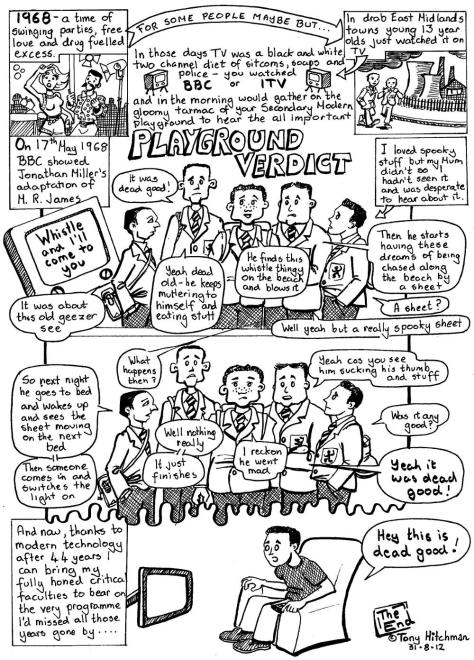
Format: DVD
Release date: 22 July 2013
Distributor: Arrow Films
Director: Robin Campillo
Writers: Robin Campillo, Brigitte Tijou
Cast: Géraldine Pailhas, Jonathan Zaccaï, Frédéric Pierrot
Original Title: Les Revenants
France 2004
102 mins
Those with only a fleeting interest in current TV listings would still be hard pressed not to have noticed the groundswell of interest in and (largely) glowing reviews of Channel 4’s new Sunday night supernatural series, The Returned. This slow burning, eight-episode French import posits a scenario in which random, dead ex-residents of a small, isolated town are inexplicably resurrected. With the Z word only mentioned once to date – and the resurrected showing no outward signs of their official post-mortem state – The Returned is focused more on the interpersonal and familial tensions wrought by the situation than it is by the ‘horror’ of it. To coincide with the series’ UK airing, Arrow Films are releasing the original 2004 movie by full-time editor and part-time director Robin Campillo on which the series is based. Originally released under the title Les Revenants (The Returned) in its homeland and as They Came Back on the international market, Campillo’s directorial debut is every bit as engrossing, creepy and atmospheric as its small-screen sibling.
Fans of the TV show worried that watching the movie mid-series might spoil both versions can rest easy, as only the concept of the original survived the transitional process from a feature length to long-form narrative. Though Campillo’s tale is on a wider scale – with some 70 million people worldwide having returned to life, and 13,000 alone in the town in which it is set – the tight focus on the lives (no pun intended) of the dead and those they left behind gives the film an intimate feel, making for a wholly engaging viewing experience more akin to brooding, arthouse human dramas than it is to visceral genre movies.
The Returned eschews histrionics and horror in favour of a studied look at the socio-political implications arising from the sudden return of the dead; do they still have the same rights? Are they entitled to walk back into their old jobs? How do governments – local and national – cope with the sudden extra demands on services and benefits? Issues surrounding grief, loss, love and the passage of time are addressed in an unhurried fashion, as the ‘dead’ and their loved ones try, some successfully, others not so, to adjust to the miraculous turn of events.
The clinical, observational air of The Returned brings to mind Peter Greenaway’s The Falls (1980) and Mick Jackson’s Threads (1984), with their personal stories similarly acting as micro insights into a macrocosmic situation. The Returned drifts along for most of its running time as if in a daze, a tonal, stylistic and aesthetic decision clearly reflective of the physical and mental state of the returned dead – robbed as they are of a sense of being fully ‘in the moment’, somehow alive but ‘concussed’, as one of the doctors charged with helping their reintegration into society observes. Those with mental health issues, dementia sufferers, immigrants and ex-offenders could all be seen as being embodied by the ‘dead’, the space they occupy on the margins of society reflected in the faceless dormitories, sideways glances and openly mistrustful encounters experienced by the titular hordes. However, such is the general ambiguity of the film that whether Campillo intended any metaphoric intent is open to debate. Only in its final act does the film enter into anything resembling a conventional genre narrative, and even then it fundamentally remains an oblique mystery. Controlled, thought provoking and refreshingly elusive, The Returned is a sparse, engaging and stimulating experience.
Neil Mitchell
Watch the trailer:



